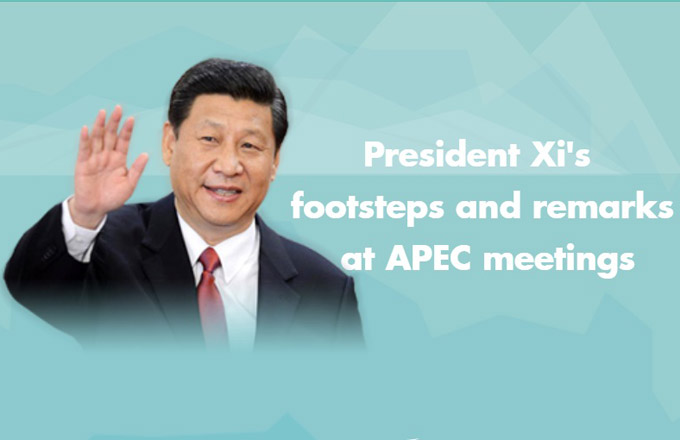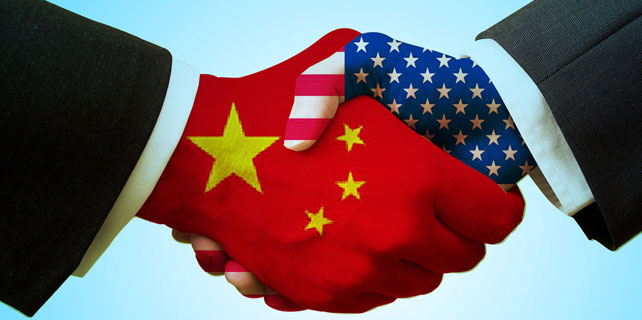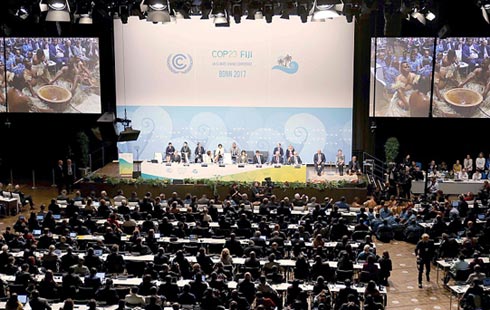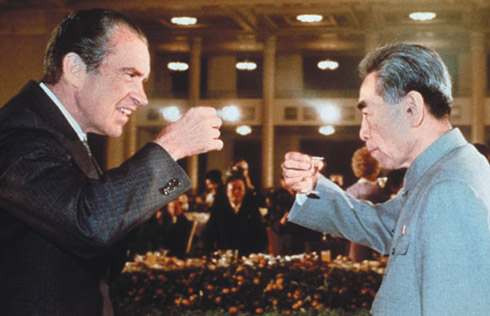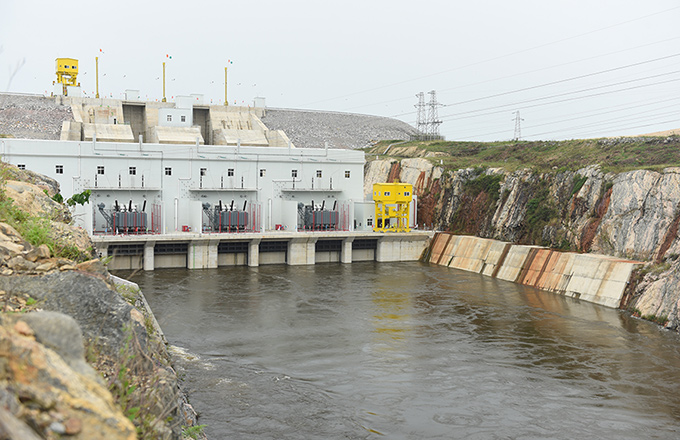Positive reviews on Xi-Trump meeting
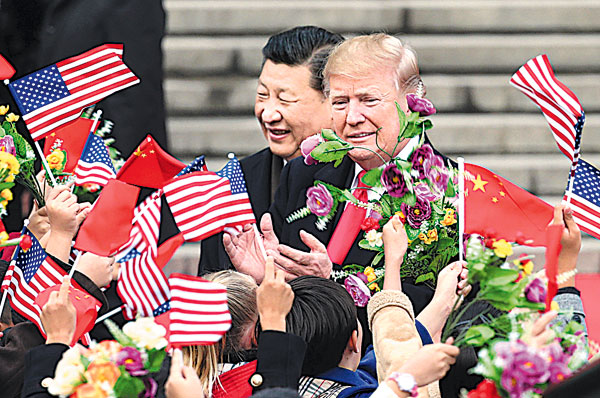 |
|
President Xi Jinping holds a grand ceremony to welcome US President Donald Trump at the square outside the East Gate of the Great Hall of the People in Beijing on Thursday. XU JINGXING / CHINA DAILY |
China watchers in the United States have spoken positively of President Donald Trump's trip to China this week.
During the Nov 8-10 trip, which was defined by the Chinese government as a "state visit-plus", Trump described, including in multiple tweets, his meetings with Chinese President Xi Jinping as "very productive on both trade and the subject of North Korea."
In Beijing on Nov 8 and Nov 9, US and Chinese businesses signed deals worth some $253 billion, involving largely Chinese purchase of US products from planes to soybeans.
|
 |
|
Jon Taylor, a China scholar and professor at the University of St Thomas. |
Jon Taylor, a China scholar and professor at the University of St Thomas in Houston, Texas, said Trump's trip "went as well as could be expected".
"While obvious differences remain, the two leaders demonstrated a genuine respect for each other. That may be the biggest take going forward -- that they understand each other and their counterpart's positions -- on issues such as trade imbalances, the Korean Peninsula, and market access," he said.
Taylor said that he is encouraged by talk of mapping out a new blueprint to remain partners as opposed to being rivals, which reinforces the dialogue that was begun in April in Mar-a-Lago, Florida.
"I think that President Xi summed it up best when he said that when working together China and the US can accomplish many great things of benefit to the entire world," he said.
Ted Carpenter, a senior fellow of defense and foreign policy studies at Cato Institute, said the visit turned out to be better than expected given the considerable apprehension leading up to the meeting between Trump and Xi.
|
 |
|
Ted Carpenter, a senior fellow of defense and foreign policy studies at Cato Institute. |
"Both leaders engaged in a gratifyingly cordial exchange of views," Carpenter said, adding that there also was definite progress about how to deal with the denuclearization of the Korean Peninsula.
"Although President Trump (like most American leaders) still seemed to believe that Beijing has more leverage over Pyongyang than actually is the case, he abandoned his insulting and confrontational rhetoric toward Kim Jong-un's regime and indicated a willingness to conduct meaningful negotiations," said Carpenter, adding that it is a stance that China has urged for years.
He observed that Trump also noticeably softened his statements and policy positions regarding trade issues with China. "His comment that he did not blame China for the habitual bilateral trade deficit was especially surprising and constructive, given his previous protectionist statements," Carpenter said.
While noting there was little substantive movement on other policy differences, including Taiwan and the South China Sea, Carpenter said those are complex issues that were not likely to be resolved in a short meeting.
"The important aspect was that those contentious matters were discussed in a cooperative, non-confrontational manner," he said. "All in all, it was a surprisingly friendly and modestly successful summit."










